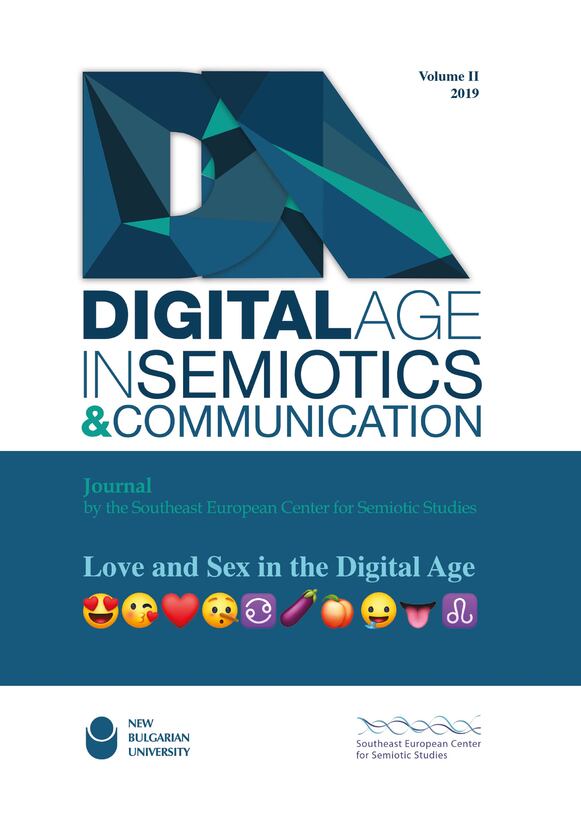
Digital Age in Semiotics & Communication, Vol. 2, 2019
Семиотика
Описание
Digital Age in Semiotics & Communication, a journal from the Southeast European Center for Semiotic Studies at the New Bulgarian University and founded by Prof. Kristian Bankov, explores the new forms of knowledge, social and linguistic interaction, and cultural phenomena generated by the advent of the Internet.
A topic is chosen for each issue by the editors’ board, but the topics will be always related to the issues of the digital environment. The topic is announced with a call for papers and will also be available on our Facebook page (facebook.com/DigitASCjournal)
The working language of the journal is English. It uses double-blind review, meaning that both the reviewer’s and the author’s identities are concealed from each other throughout the review process.
The purpose of the journal is to provide a collaborative work field for scholars interested in researching new phenomena in the dynamic digital world. Our main purpose is to build a scientific bridge between the fields of semiotics, communications, social sciences and the problems of the digital era. We believe that our collaborations can raise the level of understanding for modern digital phenomena, providing both a solid theoretical framework and profound applied research.
The pilot issue summarizes the whole research program of the Center and the journal in particular. It is open to various problems concerning developments in digital culture and phenomena. We are interested in working with scholars from different research and applied fields, such as semiotics (both applied and theoretical), communication studies, marketing and advertising, linguistics and literary studies, anthropology and ethnography, cognitive science and psychology, and computer science.
Editors for the current issue:
Mihail Vuzharov
Reni Iankova
Silvana Milenova
Digital Age in Semiotics & Communication.
Volume II, 2019: Love and Sex in the Digital Age, has been published in June, 2019
This second volume of our journal addresses an uneasy topic. It is uneasy exactly because it is too easy to speak about love and sex and yet say nothing. It is uneasy because there has not been tremendous academic interest in this topic within the field of humanities and social sciences, and contributions to the field have thus been sporadic and unsystematic. Moreover, it is uneasy because, compared to other aspects of our everyday life, love and sex concern our being in a way that it is difficult to observe in a neutral or scientific way.
However, we are here: organizing a small conference on the conse-quences for love and sex upon the advent of the internet and digital tech-nologies. We could not resist engaging this topic because our program as a research center concerns the cultural changes of the digital age, and we can hardly think of another sphere of life more affected by the develop-ment of digital communications technologies. In our preliminary research we have identified no less than six huge areas of semiotic interest (being helped by Sanders & Co. 2018):
- Cyber dating and hookup culture
- Erotica, pornography websites, and videogames
- Webcamming, hidden cams, and online voyeurism
- Sex workers’ platforms, websites, and forums
- Digitally engineered sex
- The dark side of the net: cyberbullying, online pedophilia, revenge porn, etc.
ISSN (Print) 2603-3585
ISSN (Online) 2603-3593
